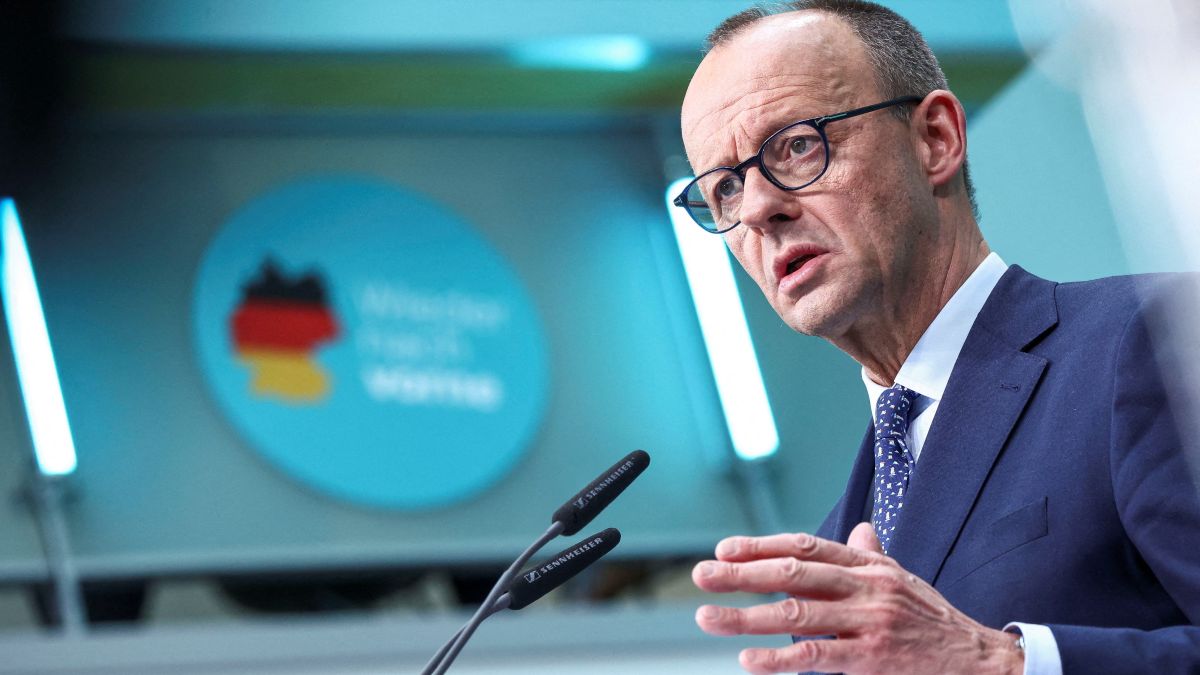Germany’s chancellor-in-waiting Friedrich Merz has a tough path ahead of him.
The conservative politician, long a champion of fiscal restraint, stunned many in his own camp by agreeing to a landmark borrowing package during the opening rounds of coalition talks with the Social Democrats (SPD).
The deal, which would unlock hundreds of billions of euros in new spending on Germany’s armed forces, infrastructure and green energy, marked a dramatic policy shift– and a clear early victory for the centre-left.
But having given the SPD much of what it wanted at the outset, Merz finds himself in an awkward position. Pressure is now mounting from within his own Christian Democratic Union (CDU) and its Bavarian sister party, the Christian Social Union (CSU), to claw back conservative wins elsewhere– particularly on migration and cuts to social welfare.
‘What do you stand for, Mr Merz?’
The trouble for Merz is that his fiscal reversal has already cost him much of his leverage. “This is a clear defeat for the conservatives, right at the start of the [coalition] negotiations,” said Johannes Winkel, head of the CDU’s youth wing, in a pointed radio interview, according to Politico. “The question is, of course, what is the quid pro quo for this major concession in financial policy.”
The sense of unease on the right is especially problematic for Merz, who has pledged to steer the CDU in a more conservative direction after what critics saw as years of centrist drift under Angela Merkel. But his embrace of compromise with the SPD and the Greens (who are expected to play a role in the coalition) risks being seen as a return to Merkel-style pragmatism, rather than the ideological reset he promised.
Far-right voices have been quick to pounce. “What do you actually stand for, Mr Merz?” asked Tino Chrupalla, co-leader of the Alternative for Germany (AfD), in parliament last week. “You’ve got the mRNA of the SPD in your veins by now.”
Impact Shorts
More ShortsMigration, welfare issues take centre stage
At the heart of the brewing tension are two issues: migration and welfare.
Merz campaigned on a tough line on immigration, pledging to tighten border controls and reject irregular entries, including asylum seekers. He also hinted at reforms to Germany’s social safety net, framing high welfare spending as unsustainable.
But with the SPD firmly opposed to both, and buoyed by the borrowing deal, they see little reason to compromise.
SPD negotiators have made clear they will not entertain conservative proposals that, in their view, erode workers’ rights or scapegoat migrants. “Anyone who says state modernisation but actually means dismantling employee rights is firstly making a mistake and secondly has the Social Democrats very clearly against him,” said Lars Klingbeil, one of the party’s lead negotiators.
A particularly contentious flashpoint is a CDU proposal to strip German citizenship from dual nationals found guilty of extremist or antisemitic behaviour. SPD youth leader Philipp Türmer called the idea an “absolute deal-breaker”, while party MPs warned it risked alienating immigrant communities and breaching European principles.
“This idea that the SPD should now grant the conservatives a blank cheque just because of the borrowing deal– that’s not how this works,” said Lars Castellucci, a SPD MP and deputy chair of the Bundestag’s interior committee. “It’s not just indecent– it’s politically unserious.”
Merz in a bind
All of this has left Merz in a tight bind. Having ruled out any alliance with the far-right AfD, and lacking the numbers for a centre-right coalition , the chancellor-elect has no real alternative to the SPD. The Social Democrats know it– and they are using their position to full effect.
The result is a coalition process that is proving more fractious than many had hoped. Despite early optimism that talks could be wrapped up by Easter, Merz has begun to signal a more cautious tone. “Thoroughness comes before speed,” he said recently.


)

)
)
)
)
)
)
)
)



